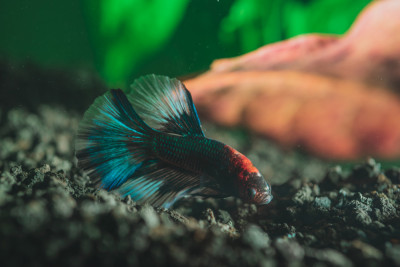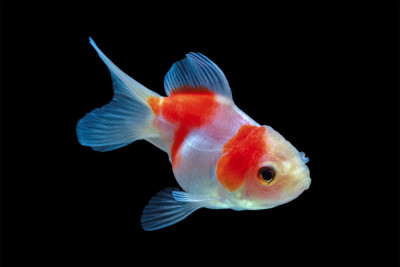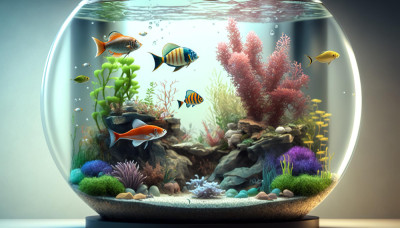-
Understand Your Fish's Dietary Needs
Different fish species have specific dietary requirements. Before adding fish to your aquarium, research their nutritional needs, including whether they are herbivores, omnivores, or carnivores. Common fish categories include herbivores (plant eaters), omnivores (eating both plants and small prey), and carnivores (meat eaters).
-
Commercial Fish Food
High-quality commercial fish food is a convenient way to provide essential nutrients to your fish. These foods are formulated to meet the dietary requirements of various fish species. Look for options designed for your specific type of fish, whether they are tropical, freshwater, or marine species.
-
Variety is Key
Just as humans benefit from a diverse diet, so do fish. Providing a variety of foods helps ensure your fish receive a balanced diet. Incorporate pellets, flakes, freeze-dried or frozen foods, and live foods if appropriate for your fish species. Different foods offer varying nutrients, and variety can mimic their natural diet.
-
Protein-Rich Foods
Protein is essential for growth and overall health in fish, especially for carnivorous species. Include protein-rich foods like brine shrimp, bloodworms, and daphnia in their diet. You can find these as frozen or freeze-dried options in pet stores.
-
Plant-Based Foods
Herbivorous and omnivorous fish require plant-based foods to thrive. Offer high-quality plant-based flakes or pellets that contain algae and vegetables. Some fish may also enjoy fresh vegetables like blanched spinach or zucchini.
-
Portion Control
Overfeeding is a common mistake in fish keeping and can lead to water quality issues and obesity in fish. Follow the recommended feeding guidelines on the fish food packaging, and monitor your fish to ensure they consume the food within a few minutes.
-
Frequency of Feeding
The frequency of feeding depends on the fish species and their age. In general, most fish do well with small, frequent meals. Feed adult fish once or twice a day, but consult specific guidelines for your species. Young fish or fry may require more frequent feeding.
-
Avoid Live Feeder Fish
While live feeder fish might seem like a natural choice, they can introduce diseases to your tank and may not provide a balanced diet. It's generally better to stick to commercially available foods.
-
Supplements
Consider using supplements sparingly and only when recommended by a veterinarian or aquarist with expertise in your specific fish species. Excessive use of supplements can disrupt the balance of nutrients in your fish's diet.
-
Monitor Health and Behavior
Regularly observe your fish for any signs of health problems. A well-fed fish should be active, have bright colors, and show interest in food. Changes in behavior or appearance may indicate dietary deficiencies or health issues.
Conclusion
Proper fish feeding is a fundamental aspect of fish care, contributing to the health, vitality, and longevity of your aquatic pets. By understanding your fish's dietary needs, providing a variety of high-quality foods, and practicing portion control, you can ensure that your fish receive a balanced diet that supports their well-being. Remember that a well-fed fish is a happy and healthy fish, making your aquarium a beautiful and thriving aquatic ecosystem.







